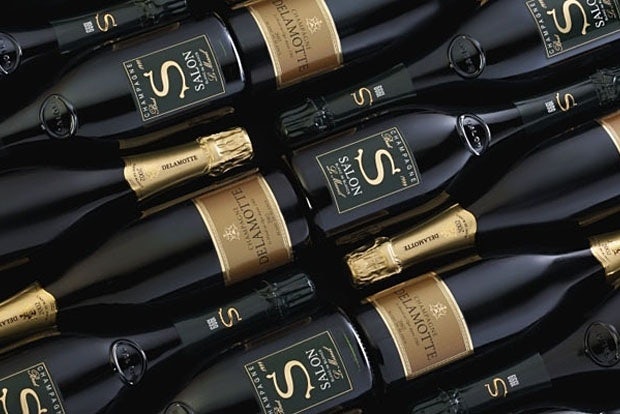Unlike the established markets for red wines and spirits in China, the Champagne industry is only beginning to fizz.
China's Champagne consumption currently accounts for less than 1 percent of total global exports of the bubbly French beverage, and only 0.5 percent of wine consumed in China is sparkling. Many Chinese consumers prefer their still wines, especially Bordeaux, or the increasingly popular Burgundy. China thus has a lot of untapped potential when it comes to Champagne, and makers are trying to figure out how to capitalize on that.
On this week’s episode of Thoughtful China, Didier Depond, president of the Salon-Delamotte Champagne house, discusses how the brand is tackling the fledgling Chinese market and leveraging low production numbers to establish itself in the market.
Salon-Delamotte is actually a two-part house: the super-exclusive Salon, with only 60,000 bottles produced every three years, and the highly reputed Delamotte, with 800,000 every year. Depond says that the Champagne market is similar to the auto industry in terms of exclusivity: there are many mid-market cars from which to choose—such as Mercedes or BMW—but in the top market, there are only a few models available of Aston-Martins or Lamborghinis. Unlike Aston-Martin, which has ventured into the lower markets, Salon-Delamotte is hoping its global reputation of exclusivity will endear the brand to the Chinese market; in fact, China only receives 200 bottles of Salon yearly.
With such a low circulation in the market, building brand recognition can be hard. Depond recognizes that, but cites another issue that’s hampering Champagne’s growth in China: understanding what Champagne is.
“In the beginning, it was all ‘sparkling wine’; it was just for the bubbles,” says Depond. Now, he says China has grown tremendously in understanding what Champagne is, and China’s recent legal recognition of the “Champagne” appellation has helped differentiate Champagne from other sparkling wines in the market.
Even as the partner of established brand Camus Cognac in China, Depond knows that Salon-Delamotte’s biggest challenge is finding the volume to sate the demand. “I know that in five to 10 years, we will need maybe 2,000 or 5,000 bottles,” says Depond. “But we will find a solution, I promise you.”
